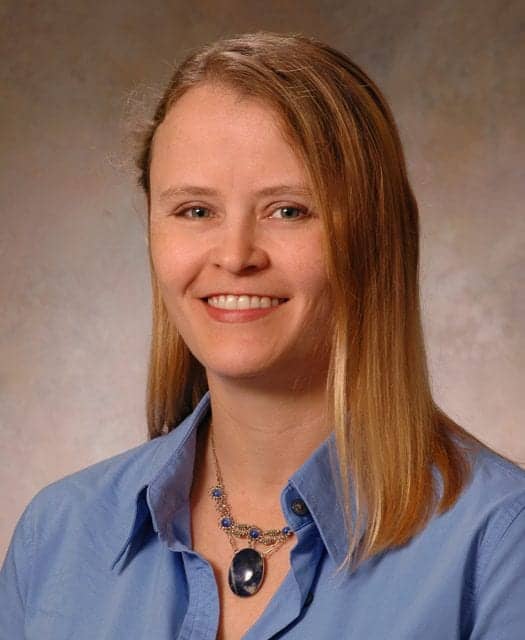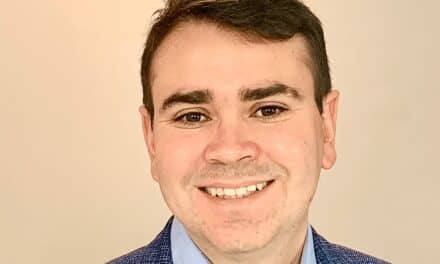Children sleep better when parents establish rules, limit technology, and set a good example, according to the National Sleep Foundation. 2014 NSF Sleep in America poll scholar Kristen Knutson, PhD, provides her insights to Sleep Review (SR). “We found that when parents take action to protect their children’s sleep, their children sleep better,” says Knutson, a faculty member at the University of Chicago’s Department of Medicine.
SR: With these study results, what would you recommend as the next steps to improve the sleep situation for children and families in the United States?
Kristen Knutson, PhD (KK): The first step is to educate families about the things that can impair sleep, including the use of electronics at night. Families should develop a strategy to improve sleep in their homes and the National Sleep Foundation has helpful tips on its webpage.
SR: Should we leave all changes (such as enforcing bedtimes) up to individual families themselves or should some changes be done on a larger scale (for example, school board changes to back up school start times)?
KK: It is hard to say without studies supporting effectiveness of individual versus large-scale changes. Nonetheless, changes on a larger scale can be more difficult and can take longer to achieve. That is why it is important to let parents and children know about the importance of sleep and how setting and enforcing rules and not leaving electronics on after bedtime help. Then, they have the knowledge to make immediate healthy changes themselves.
SR: What result from the Sleep in America poll did you find most surprising?
KK: A surprising finding to me was how common electronics, like a television, were in the bedrooms of young school-age children: 50% of children 6-11 had at least one device in their rooms. The presence of electronics is pervasive and not just an issue for teenagers and adults. Thus, it is important to understand how they are affecting sleep.
SR: With your focus on real-life research, can you provide any insight as to what works and doesn’t work when it comes to enforcing sleep-related rules with children?
KK: I think anyone who is a parent knows how challenging enforcing rules with children is, but we also know how important it is. I think an important component is explaining to the children (in age-appropriate language) why you are enforcing the rules. Specifically, explain how sleep is important for so many things and that these rules are meant to help them get the best sleep possible.
SR: When it comes to sleep problems in children, has the trend been that these problems are getting better or worse over the years? What do you predict the results of a similar study would be 5 years from now?
KK: This is difficult for me to answer since there haven’t been good studies to assess trends previously. Moving forward, my hope is that as we disseminate the research results and educate the public about healthy sleep, then less healthy sleep habits will decrease. It’s an important goal to say the least.
SR: In my experience, it seems that primary care physicians, including pediatricians, don’t generally initiate conversations about their patients’ sleep. Do you agree or disagree with this assessment? Would you recommend that primary care physicians do more to address issues such as turning electronics off and having a consistent bedtime with their patients?
KK: As most of us know, sleep isn’t covered in depth in most medical school curricula and so many physicians may not have been trained to ask about sleep during an exam. Still I think both physicians and patients (or their parents) shouldn’t hesitate to bring up the issue of sleep at a clinic visit. Primary care physicians play a very important role and people do look to them for guidance on healthy behaviors.
SR: What can our readers, sleep professionals, do to help the nation’s children and families achieve better sleep?
KK: As sleep professionals, we share the belief that sleep is important. I think we need to do what we can to share that message with people outside our profession, including non-sleep specialist physicians or the general public. There are often local community activities such as health fairs in which we can help educate others about the importance of sleep and how to achieve better sleep.
SR: There has been a push in several school districts to start school later, so students are more likely to get enough sleep and hence perform better. What is your perspective on the “start school later” movement?
KK: Adolescents are at a critical juncture in life, in terms of both social and biological development. The conflict between their circadian biology (delayed sleep times) and social commitments (early school start or even earlier extracurricular activities) puts them in a precarious position. If a later school start time can help to alleviate some of these problems, then a later school start time should be considered. It’s really up to that family’s individual schedule and needs.
SR: Is there anything else you’d like to add about the 2014 Sleep in America poll?
KK: I want to reiterate that there are steps parents can take to help their children sleep better, including setting and enforcing rules about electronic use at night or caffeine consumption. Simply being aware of the things that can impair sleep can help people make sleep a priority. It’s the National Sleep Foundation’s goal and mission to provide the healthy sleep tips that allow people to do just that, take back their sleep.





